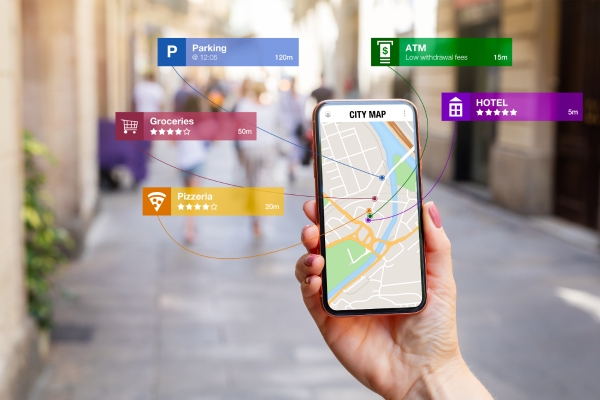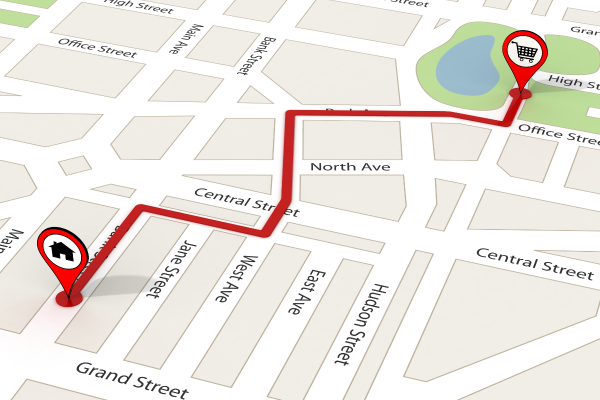Google Business Profile guidelines: all you need to know
Seeking to elevate your business visibility on the world’s largest search engine through Google Business Profile? Hold on tight, because Google lays down some stringent rules for businesses wanting to utilize its platform.
Failing to adhere can seriously hamper your online visibility and penalize you.
Therefore, getting well-acquainted with them is vital to stay in Google’s good books. The hitch is, there are quite a few guidelines and, unless you’re a Google Business Profile connoisseur, getting to know them all can be a hefty task.
But fret not! Debugbar has crafted this handy guide to walk you through all the essential guidelines you need to comply with! Let’s unravel them together!
What is Google Business Profile?
Google Business Profile (GBP formerly GMB) is a free local SEO & marketing tool designed to let businesses control their online presence across both Google Search and Google Maps.
If you’ve ever searched for a business on Google and seen an information box appear on the right side of the search results, you’re already familiar with GBP.

It displays crucial information – from operating hours and contact details to customer reviews and photos – that’s up to date and easily accessible.
Google Business Profile is therefore very practical. But to take advantage of the many benefits offered by the platform, it’s essential to respect the rules imposed by the latter.
Why is it essential to respect Google guidelines for your Business Profile?
Google, intending to offer a user-friendly and accurate online experience, works on specific guidelines for Google Business Profile.
Adhering to these ensures:
- An accurate portrayal of the business,
- A positive user experience,
- Consistency of Name, Address, and Phone number (N.A.P.).
Failure to follow and comply with these guidelines may lead to dire consequences such as suspension of your GBP listing.
So it’s in your best interest to be aware of them and comply with them. That’s why Debugbar has prepared a detailed list of the 12 must-know Google Business Profile guidelines.
The 12 guidelines you absolutely need to know
Before we delve into each guideline, here’s a quick sneak peek at what’s in store:
- General principles
- Business eligibility & ineligibility rules
- Profile accuracy and integrity
- Content guidelines
- Business name specifics
- Address and service area protocols
- Service-area business protocols
- Web presence & communication
- Business hours and categories
- Rebranding and ownership protocols
- Content, engagement, and behavior restrictions
- Business profile messaging
Now, let’s have a detailed look at each one!
General principles: your GBP listing has to accurately represent your business
Your Google Business Profile listing should accurately represent your business. Compliance with all the product guidelines provided by Google is essential.

Avoid any prohibited content or behavior that might violate these guidelines. Adhering to Google’s general principles encompasses adhering to an accurate representation of your business and all the product guidelines by Google.
Here’s what it includes in detail:
- True representation: Ensure that your business name, type, and location accurately represent what your business is and where it’s located. Misrepresenting your business can lead to suspension.
- Complete adherence: Be aware of all the product guidelines provided by Google and make sure to adhere to them. These include guidelines related to content, behavior, and user interaction.
- No prohibited content: Avoid to add any content (photos, videos, posts, etc.à) that falls under Google’s prohibited categories, such as violent or graphic photos, harassment and bullying posts, among others.
- Courteous behavior: Maintain a positive and respectful interaction with your customers. Any form of disrespect, discrimination, or negative behavior can lead to severe penalties.
Remember these general principles as they serve as the foundation for correctly setting up and managing your GMB listing.
Business eligibility & ineligibility rules: ensuring your business qualifies for a GBP account
Not all business entities are eligible for GMB. Here are the specifics:
- In-person interaction: Your business must allow in-person interaction with customers at least during specified hours. This is one of the primary eligibility criteria for GMB.
- Exclusions: Certain entities, including online-only businesses and rentals, are not eligible for a GMB. Ensure your business type is eligible before creating a profile to avoid potential issues.
Understanding these rules ensures that you don’t waste time creating profiles for businesses that aren’t eligible.
Profile accuracy and integrity: reflecting a true image of your business
This guideline focuses on how accurately your business is depicted in your Google Business Profile.
Here’s what it comprises:
- Consistent Business Profile: Your listing should reflect your actual business in every possible way. This includes :
- Business name
- Location
- Operating hours
- And other relevant details
Consistency across all platforms is crucial, as discrepancies can mislead customers and trigger penalties from Google.
- Precise address: Your address should be accurate and complete. Google discourages the use of P.O. boxes or remote mailboxes as these do not represent actual business locations.
- One profile per business: To maintain the integrity of data on Google Maps and Search, you should have only one profile for each physical location of your business. Meaning that if you have several locations you can set up a specific listing for each location. But beware, if you set up multiple profiles for a single location it can lead to confusion for users and might be penalized by Google.
Just remember, honesty translates to credibility in the world of GBP!

Content guidelines: ensuring quality and relevance in your GBP content
When it comes to GMB, not just any content will do. Google provides specific guidelines on what you can and can’t include:
- Unique aspects: Showcase your business’s unique aspects without focusing too much on promotions, prices, or sales. This gives users an insight into what sets your business apart from the rest.
- No personal/confidential information: Refrain from including personal or confidential information in your business profile. This includes asking for such information from your customers.
- Link-free business descriptions: Your business description should be devoid of any links. This means you cannot include website URLs or social media handles in this section.
- Relevant and high-quality content: Ensure that whatever content you add is relevant to your business and offers some value to the reader. Google frowns upon low-quality, irrelevant content that serves no purpose other than to fill up space.
Acceptable contents create a more trustworthy image of your business, leading to higher customer engagement.
Business name specifics: representing your business name accurately and simply
Your business name plays a pivotal role in GBP. Here’s how Google wants you to represent it:
- Real-world representation: Your business name on your listing should align with how it appears in the real world. Online embellishments that don’t match your actual business signage may confuse customers and violate Google’s guidelines.
- No extra information: Don’t add any unnecessary information to your business name. This includes:
- Taglines
- Store codes
- Special characters
- Hours or closed/open status
- Phone numbers
- Website ur ls
- Products or services information
- Location/address or directions
- Or containment information (like “chiropractor in x mall”)
Keeping your business name simple and accurate helps users find you quickly and reduces the risk of confusion.
Address and service area protocols: providing precise location details
Google has specific guidelines for your address and service area to ensure users can find your location with ease:
- Visible signage: Your business location should have permanent signage displaying your business name prominently. This aids in confirming the physical existence of your business during Google’s verification process.
- No multiple pages for one location: Creating multiple pages for a single physical location is a big no-no. For example, you cannot create separate listings for different departments within a supermarket or different doctors in a medical clinic.
These guidelines are designed to uphold the accuracy of Google Maps and provide users with the most relevant results.

Service-area business protocols: managing home-based and area-specific businesses
If your business offers services in specific areas, or is a home-based business, Google has a separate set of guidelines:
- Single profile for main office: If your business operates in several areas but has a central office, you should list this office as your primary location and create just one profile. This profile will then serve as the center from which your service areas radiate.
- Distinctive delivery brands: If your business shares kitchen space with other food brands but offers delivery services only, ensure clear demarcations between your brand and others. Each brand should have its unique profile.
These guidelines help to maintain transparency and accuracy while catering to businesses that operate differently than traditional brick-and-mortar establishments.
Web presence & communication: maintaining transparency and direct customer interactions
Your web presence and how you communicate with customers is also guided by specific rules:
- Local phone number: A local phone number that’s directly controlled by your business helps establish trust with Google and your customers. Hence, it’s recommended to provide one in your GMB.
- No redirecting phone numbers or URLs: The phone number or website URL you provide should lead users directly to your business. Any attempt to redirect them elsewhere may be considered misleading and violate Google’s guidelines.
- No premium-rate telephone numbers: Google doesn’t allow the use of premium-rate telephone numbers as they can lead to unexpected charges for the customers.
Remember, clear and direct communication with customers adds credibility to your business.
Business hours & categories: displaying accurate operational times and business type
Google has specific prescriptions about how you should list your business hours and category:
- Customer-facing hours: Your GBP should accurately reflect the hours during which customers can interact with your business in person. This includes any changes for special events or holidays.
- Precise category: Your chosen category must accurately represent your core business to help customers understand what your business is about. Using an excessive number of categories or irrelevant ones might mislead customers and could be penalized by Google.
Providing accurate business hours and category lets customers know when and how they can engage with your business, enhancing their user experience.

Rebranding & ownership protocols: managing GBP during transitions and changes
Changes in business ownership or brand name are common. Here’s what Google expects in such scenarios:
- Rebranding guidelines: If your business undergoes minor or major name changes, ensure to adhere to Google’s rebranding guidelines. This keeps your customers up-to-date and maintains data accuracy on GBP.
- Ownership verification: Only owners or authorized representatives can manage and verify business information. Unauthorized handling of a business profile may lead to suspension.
These guidelines ensure your listing is always up-to-date and credible, irrespective of any changes your business goes through.
Content, engagement, and behavior restrictions: fostering genuine and appropriate interactions
Google has stringent rules regarding the content you publish and how you engage with customers:
- Authentic content and engagement: All the content published and engagement with customers should be genuine. Offering incentives for reviews or manipulating feedback in any form is not acceptable.
- No misinformation or impersonation: Do not provide false health/civic data or impersonate other businesses. This could seriously mislead users and is strictly prohibited!
- No inappropriate content or behavior: Any form of inappropriate content spanning various categories or behavior is strictly forbidden (even if some customers give you unjustified bad reviews).
Following these guidelines helps build a transparent, authentic, and positive online community.
Business profile messaging: adhering to guidelines for direct customer communication
Google offers chat features for you to communicate with your customers. Here are the related guidelines:
- Chat guidelines: When conversing with customers through chat, be sure to observe all content restrictions and prohibited behavior.
- Secure information: During chat interactions, ensure the security of personal and confidential information. It’s essential to maintain customer trust and adhere to privacy laws.
- Prompt responses: Respond to customer messages, reviews and inquiries promptly. This enhances customer experience and boosts your reputation.
If you follow these guidelines, you can leverage the chat feature to its fullest while maintaining a positive rapport with your customers.

What happens if you don’t respect the guidelines?
Bending or breaking Google’s GBP guidelines is a risky venture that could have serious repercussions. A well understanding of the following consequences can help you strive for strict adherence:
- Profile suspension: Violating the guidelines can lead to the suspension or removal of your GBP account. This means your business will disappear from Google Search and Maps.
- Negative impact on visibility & client interactions: Suspension also means a reduction in your online visibility, which could decrease customer interactions and consequently affect sales.
- Potential loss of trust & business opportunities: Non-compliance reflects poorly on your business, damaging user trust, and consequently missing potential business opportunities.
Remember, Google’s primary concern is to offer its users a positive experience. Therefore, any business practices that hinder this can result in severe penalties. To enjoy the benefits GBP offers, ensure you follow the guidelines to the letter.
Google Business Profile guidelines: The bottom line
Thoroughly understanding and applying Google Business Profile guidelines is not just a precaution, but a necessity for businesses seeking to leverage Google’s massive user base effectively.
Here’s a recap:
- Google Business Profile is a free local SEO & marketing tool to manage your business presence on Google Search and Maps but requires in-person customer interaction.
- All guidelines by Google, general or specific, aim to ensure accurate business representation and a positive user experience.
- GBP guidelines cover all aspects from business name, address and web presence to content, multimedia, and chat interactions.
- Breaking these guidelines can lead to suspension of the GBP, decreased visibility, reduced customer interaction, and missed business opportunities.